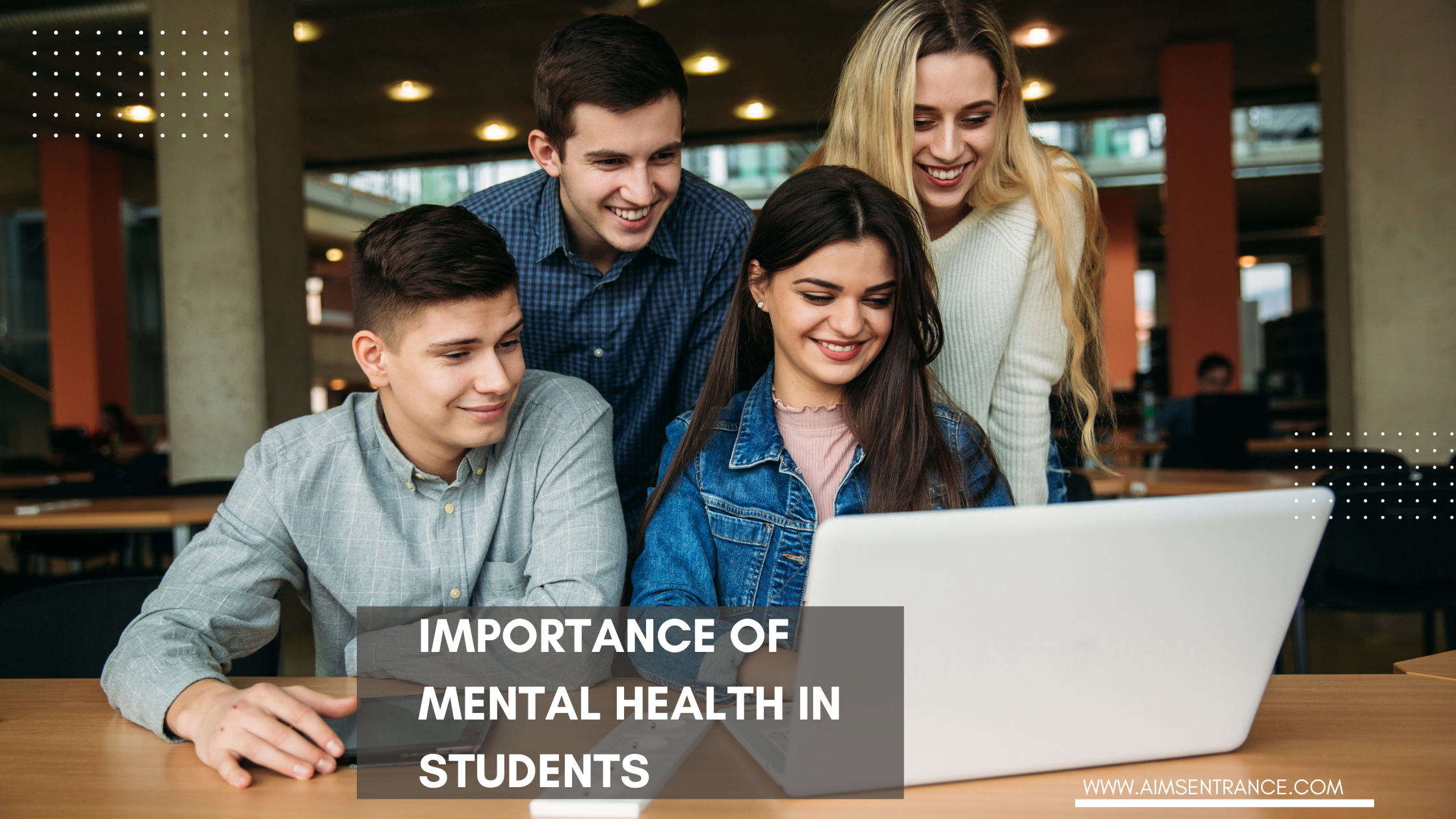Research and studies show that good mental health positively affects the learning, creativity, socialization, physical health, and productivity of a human. Good mental health is just as important for students as it is for the rest of the population. We hope this article gives you an idea about the importance of mental health in students.
Reasons for Mental Illness in Students
Our mental health also affects our physical health. If we have anxiety, depression, eating disorders, or sleeping disorder, it will badly affect our physical health and social relationships. In this article, we are discussing the importance of mental health.
According to a study, 40% of students with mental illness didn’t take professional support. The mental illness of students affects their studies and social well-being. A student with mental illness may experience challenges in their whole life. If one’s mental health is not good it will cause issues in concentrating on classes and doing projects.
The main reasons for mental illness in students are pressure from family, financial issues, academic pressure, and choosing a course that is not in their interest.
Importance of Mental Health in Students
The mental health of students can affect their education, social life, and emotional well-being. Students struggling with mental health may experience greater challenges throughout school and adulthood, while those not working may have a greater eagerness for their education, social experiences, and more.
Our mental health plays an important role in understanding new information, taking in new concepts, making important decisions, and developing new skills. When struggling with depression, anxiety, or other mental health issues, working on assignments and attending classes can become impossible. According to the Association for University and College Counseling Centre Directors, depression is the number one reason students drop out of school.
While a certain level of anxiety and stress can encourage students to study for exams or complete assignments on time, consistently high levels of anxiety and anxiety disorders can disable their actual skills and may result to go backward in their studies.
The students who get strong support from families, friends, and teachers show excellent performance in academics and extracurricular activities. They will show more interest in learning new things and use their creativity in various ways. So it is very important to give support to students in all aspects. It will surely reflect on their academics.
How did Covid-19 affect students’ mental health?
Recent research and studies show that covid-19 and lockdown causes a negative impact on the mental health of students as well as others. Some mental health illnesses due to Covid – 19 are:
- Anxiety and depression.
- Mood swings.
- Addiction to video games and online games.
- Excess eating to cope with emotions such as frustrations, stress, boredom, and fear (emotional eating).
- Lack of motivation and a sense of lethargy.
- Addiction to social media results lack concentration.
If you are curious to know more about how Covid-19 adversely affects the mental health of students. Read this article
Tips to improve mental health in students.
Mental health for students is a serious issue in the current scenario, especially during and after this pandemic situation. It is also a critical issue for educators, who are frequently their pupils’ first line of defense. Education experts have acknowledged the influence that a student’s mental health has on learning and accomplishment, and they admit that we can do more things to support and help the students fighting mental illness. Some tips to improve your mental health are below.
1. Proper diet
Poor diet and unhealthy food will affect your mental as well as physical health badly. Eating proteins rich, nutritious, fibrous food can help you to manage your stress and anxiety. It helps to improve your physical health also. So the first and most important tip to improve your mental health, as well as physical health, is to follow a proper diet.
2. Take proper sleep
You have to sleep 8-9 hours properly to get a refreshed brain and mind. Sleep has indeed been linked to a variety of physical and mental health effects. While some psychological or mental illnesses may contribute to sleep troubles, a lack of sleep can intensify pre-existing conditions including depression, stress, and anxiety. Getting adequate sleep every night and going to bed early or at a decent hour is an excellent approach to living a healthy and happy life.
3. Choose the right course that excites you
If you are forced to take one course that doesn’t excite you or not suits your character, it will affect your mental health badly. You have to self asses and choose the right course. That will help you to learn with excitement and joy. If you want to know more about how to choose an appropriate career please read.
4. Find time to spend on your hobbies
What are your hobbies? Reading, Dancing, Playing music, or hearing music? Whatever it is, it’s important for your mental well-being that you devote some time to doing something you truly like. Having a little fun every day, whether for 5 minutes or longer, may help relieve tension and focus your attention and concentration on something that offers you true delight.
5. Be active
One of the most important tips on our list to improve mental health for students is to be active and exercise regularly. Certainly, after COVID-19, our routine has become slightly lethargic. Students are now asked to sit for hours in front of screens, computers, laptops, and other gadgets. All these practices are not only worsening the physical health of students and youth but also affecting their mental health.
You can go for a walk or jogging and also other sports activities and yoga helps to improve your mental as well as physical health.
6. Give your mobiles some rest
This is another pro-tip to improve mental health for students that will also relax your body, especially the eyes. Excessive and extended use of social media and other forms of media might have negative consequences. Even excessive news intake might have a negative impact on your mental health. There’s no need to avoid them fully from your life but limiting their usage is a good option.
7. Spending time with your friends.
Connecting with friends or loved ones is an essential aspect of maintaining a healthy lifestyle. By avoiding loneliness and unpleasant feelings, socializing with real people that you love being around can help you feel better. You can engage in a fun activity, such as solving a puzzle or playing a board game, or simply catching up and talking.
8. Do some mental health exercise
Choose one or two mental health activities that you enjoy and plan them into your calendar on a regular basis. Some of the best mental health exercises are meditation or yoga, stretching, drawing, solving puzzles, listening to music, or dancing.
9. Take support if needed
Getting assistance when you need it is the right and healthy thing to do. Unfortunately, most people hesitate to take professional help to improve their mental health. We have to understand and learn that there is absolutely no harm in receiving treatment for our mental health.
“You, yourself, as much as anybody in the entire universe, deserve your love and affection.”
Let’s hope for a brighter tomorrow.






